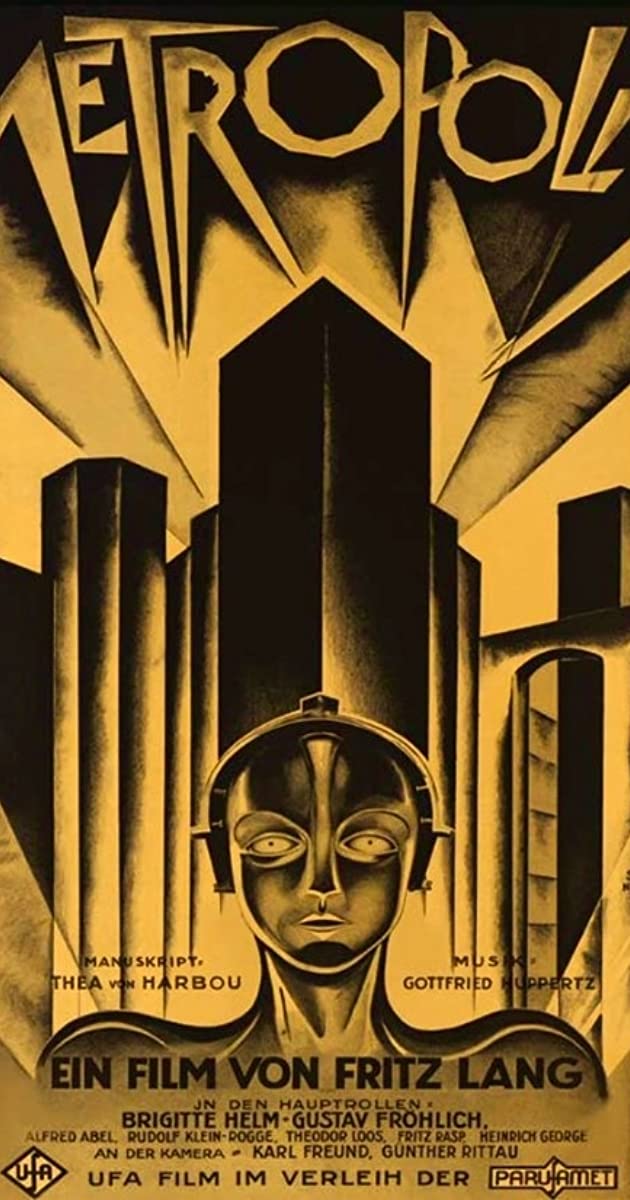Metropolis (1927)

In a futuristic city sharply divided between the working class and the city planners, the son of the city's mastermind falls in love with a working class prophet who predicts the coming of a savior to mediate their differences.
Director: Fritz Lang
Writer: Thea von Harbou
Stars: Brigitte Helm, Alfred Abel, Gustav Fröhlich
Country: Germany
Studio: UFA
Genre: Sci-Fi
"The mediator between the head and the hands must be the heart."
One of the early epic science fiction films that wowed audiences with it's pioneering special effects. Techniques such as using miniature models of the city, using a camera on a swing, a giant robot costume worn by an actor, and finally the Shufftan Process, which uses mirrors to create the illusion that actors are occupying miniature sets. However, even with these novel effects and its enormous budget, Metropolis was still released to mixed reception from critics and audiences. People heralded it as beautiful and visually powerful but lacking in story, with some going as far as to call the story trite and silly. This response is shocking when compared to the overwhelming critical and commercial success of A Trip to the Moon only twenty years prior. Boy do tastes evolve quickly. Of course, nowadays people claim it is one of the best science fiction pictures of the age, and for good reason.
The film was born from its director, Fritz Lang seeing the skyscrapers in New York City. Writer Thea von Harbou also took inspiration for the plot from World War 1, as well as the culture of the Weimar Republic in Germany. With Metropolis Harbou and Lang attempted to explore themes of industrialization and mass production and their effects on society as well as how they impacted the war.
Personally, I found Metropolis to be far too long. I imagine I am similar to the audience of the day like that. At first I could appreciate the special effects, as well as the scale of the project. But a two and a half hour runtime is just far too long to be propped up by effects. Regardless, the message still holds true. Only today in our "new age" we are concerned about Artificial Intelligence rather than industrialization.